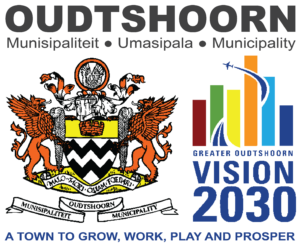Oudtshoorn, 02 March 2021 – Following review of its annual budget last week, the Oudtshoorn Municipal Council resolved to among others, apply a stringent process of cost containment on all expenditure types in order to monitor all possible further savings and that only essential expenditure be incurred.
Council passed the adjustment budget for the 2020/2021 financial year at its special council meeting on Wednesday, 25 February 2021. Council also resolved to amend the 2020/2021 Service Delivery and Budget Implementation Plan (SDBIP) to incorporate the amendments contained in the adjustment budget.
Municipalities are required by law to review their budgets before end of February every year to adjust various items of revenue and expenditure, in accordance with the current performance after a technical review and analysis of the year-to-date financial performance.
In his technical presentation to Council on Wednesday, 25 February 2021, the acting chief financial officer, Mr. Louis Fourie said: “The adjustment budget highlighted the fact that certain revenue and expenditure targets needed to be adjusted upward and downward. “This is aimed at ensuring the credibility of the budget and to see to it that financial targets for the 2020/2021 financial year will be met,” Fourie added.
The 2020/2021 Mid-year 3rd Adjustments Budget amounts to operating expenditure of R 638,1 million, operating revenue of R 594,9 million and capital expenditure amounts to R 132,3 million. Capital investment represents 20.7 % of the municipality’s 2020/2021 mid-year adjustments budget.
Operating revenue analysis
Total revenue has decreased by 3.97% or R 28.7 Million from the 2nd to the 3rd adjustments budget mainly as a result of the adjustments being done in respect of the non-approval of certain electricity tariffs by NERSA coupled with a reduction in consumption of electricity by consumers and the decrease in billed water revenue as a result of the drought. The negative impact on the local economy due to the Covid-19 pandemic and lockdown is evident and can be also be regarded as a reason for the large decrease in billed revenue.
- Electricity service charges reduction – R 11.3 Million;
- Water service charges reduction – R 8 Million;
- Interest earned – external investments decrease with R 5.2 Million;
- Interest earned – outstanding debtors decrease with R 2.5 Million;
- Fines, penalties forfeit decrease with R 4.2 million as a result of no service provider to collect fines revenue;
- Transfers and subsidies decrease with R 1.7 million as a result of the 2020/21 Emergency Housing Grant allocation that was revoked by the Provincial Government; and
- Other revenue decreases with R 4.8 million due to the Cango Caves entrance fees decline, because they cannot function at full capacity due to Covid 19 restrictions-imposed country wide on all tourism activity destinations.
Operational expenditure analysis
Total operating expenditure for the 2020/2021 3rd adjustments budget decrease with 2.8% or R19 Million from the 2nd adjustment budget as a result of mainly the reduction or increase of the following expenditure items:
- Employee related cost decrease with R 6.4 Million;
- Contracted services decrease with R 8.1 Million;
- Depreciation & asset impairment decrease with R 1.5 Million;
- Debt impairment decrease with R1.5 Million;
- Transfers and subsidies decrease with R 2.4 Million; and
- Other expenditure decreases with R 1.6 Million
Capital budget analysis
The main factors contributing to the adjustment of capital budget are as follows:
- Capital Budget Increase from R 123.4 million to R 131.7 million as a result of the approved roll-over for the New Rose valley Library
- Shift of R 3.5 million borrowing funds between De Jagers Athletic tracks and Rehab of Streets and water (No co-funding to upgrade the Athletic tracks)
- Technical Department confirmed that they will be in a position to spent the funds before 30 June 2021
- Borrowing funding can only be utilised towards INFRASTRUCTURAL projects;
- Projects with an expected lifespan in excess of 10 years;
- Project from which the funds is utilised will have to be addressed in 2021/2022 draft budget.
The decreases in expenditure items were necessary due to the decrease in billed revenue and other revenue, and non-current provisions needed to be adjusted after the audit figures became available.

